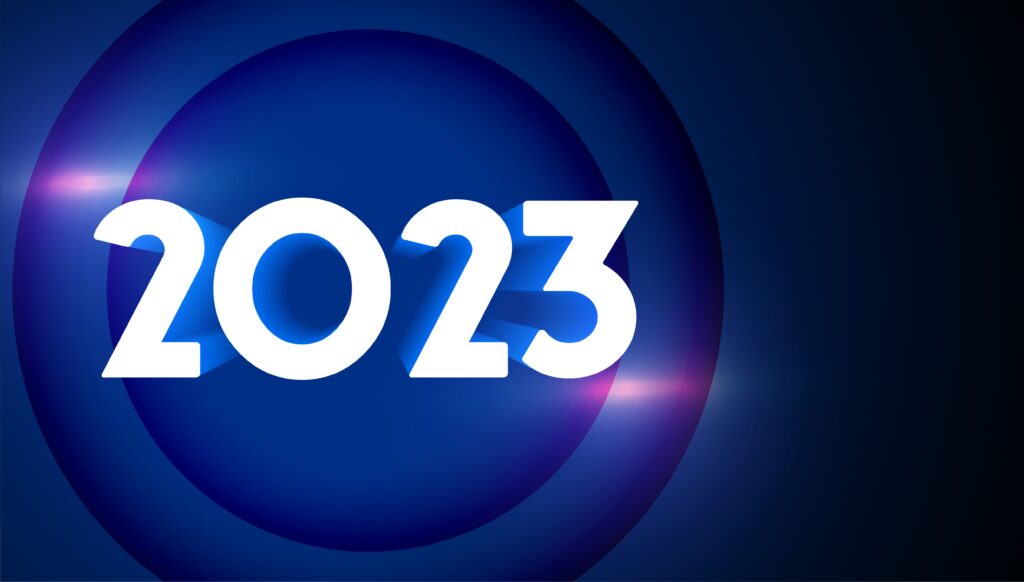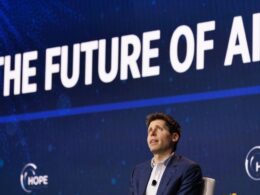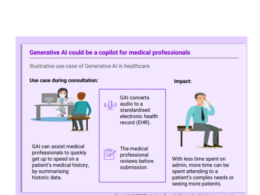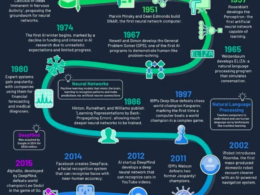the health strategist
institute, portal & consulting
for workforce health & economic prosperity
Joaquim Cardoso MSc.
Servant Leader, Chief Research & Strategy Officer (CRSO),
Editor in Chief and Senior Advisor
January 8, 2024
Originally published on LinkedIn and written by Bernard Marr, on January 8, 2024.
What are the 8 biggest moments?
1. Release Of GPT-4 To ChatGPT Users
2. The Pope Wears A Ridiculous Puffer Jacket
3. EU AI Act And China GAI Measures
4. AlphaMissense – A Breakthrough In Identifying Dangerous Gene Mutations
5. OpenAI’s Troubles At The Top
6. Petition For Pausing Development Of AI
7. Integration Of ChatGPT Into Microsoft Bing (And Then Into Everything Else)
8. The Bletchley Declaration

Thank you for reading my latest article The 8 Biggest AI Moments Of 2023. Here at LinkedIn and at Forbes I regularly write about management and technology trends.
To read my future articles simply join my network by clicking ‘Follow’. Also feel free to connect with me via Twitter, Facebook, Instagram, Podcast or YouTube.
I feel confident that 2023 will be looked back on as a major turning point in the adoption of AI into society.
Largely thanks to the emergence of generative natural language interfaces, including ChatGPT, AI has become an increasingly omnipresent aspect of our everyday lives.
From what we know of earlier technological and industrial revolutions, the arrival of AI is as much about societal change as technological change. The impact on how we work, build, socialize and play will be enormous, and the direction this will take us in is likely to be strongly influenced by actions taken today.
So, here’s what I believe are the most important events of the last 12 months – in terms of the implications they could have on the future of not just AI but our lives.
Release Of GPT-4 To ChatGPT Users
2023 was undoubtedly defined by ChatGPT mania. Although we were blown away by the capabilities of the GPT-3.5 engine powering its initial release, rumors were swirling regarding the upcoming GPT-4 and how much more powerful and capable it would be. When it arrived in March, few were disappointed – it was clearly far more advanced in its ability to converse and provide us with information. Further updates throughout the year gave it the ability to search the web as well as view and create images.
The Pope Wears A Ridiculous Puffer Jacket
Public awareness of the dangers of fake AI images and videos rose in 2023, thanks to the emergence of ever-more realistic deepfakes and scams. One incident in particular threw a spotlight on the issue when images of Pope Francis wearing a ridiculously oversized puffer jacket appeared at the top of our social media feeds. The image was noteworthy for its realism, and the response showed that it had clearly fooled many people. For many, this could have been the first real indication of the technology’s potential for spreading manipulation and misinformation.
EU AI Act And China GAI Measures
As examples of legislation being enacted in 2023, the European Union AI Act and China’s Interim Measures for the Management of Generative Artificial Intelligence (GAI) are potentially the most significant. In June, the European Parliament adopted the act, which is designed to ensure the safe, reliable, and transparent use of AI in line with existing legislation, including the Human Rights Act and GDPR. The GAI interim measures aim to promote the healthy use of AI that is in line with moral and ethical values. Both contain measures aimed at addressing the issue of AI and intellectual property.
AlphaMissense – A Breakthrough In Identifying Dangerous Gene Mutations
Some of the most profound implications for AI are in the field of bioscience and genetics, and in 2023, Google made a significant leap forward with its DeepMind-developed AlphaMissense model. Google demonstrated that its model was able to identify potentially dangerous mutations that can cause diseases like cystic fibrosis, sickle-cell anemia, hemophilia and cancer. The breakthrough built on work previously done by the AlphaFold project and a catalog of mutation data was published with the aim of helping researchers fight these diseases.
OpenAI’s Troubles At The Top
We’ve never seen a business go from virtual obscurity to darlings of the tech world as quickly as has happened with ChatGPT owner OpenAI, so it’s probably natural that its organizational integrity experienced some stress. CEO and current Silicon Valley Golden Boy Sam Altman was briefly fired before being reinstated due to reasons that still aren’t exactly clear but seem to be down to board-level politics and rivalry. Why is it significant? Well, we’ve never seen a superstar CEO like Altman removed and then returned to power- due to popular demand– so quickly. The event has led to renewed calls for greater regulation and scrutiny into the ways that leading AI companies are run, which could influence debate on the subject in the future.
Petition For Pausing Development Of AI
Public awareness is a critical part of the puzzle regarding managing AI’s integration into society. The Pause Giant AI Experiments open letter petition may not yet have achieved its apparent primary aim. Thanks to the publicity generated because signers include Elon Musk, Yoshua Bengoi and Stuart Russel, they captured headlines and generated awareness. By the end of the year, more than 33,700 signatures had been gathered, and although research on giant AI is ongoing, I believe many of us have a better understanding of what’s at stake as we head into 2024.
Integration Of ChatGPT Into Microsoft Bing (And Then Into Everything Else)
A new version of Microsoft’s Bing, powered by ChatGPT, appeared early in 2023, marking the first time many people would see natural language integrated into a search engine. The move was not surprising as Microsoft’s multi-billion-dollar investments in ChatGPT’s creator, OpenAI, were well publicized. However, it marked the start of a rush to integrate large language models capable of understanding and responding via human language into many tools and apps. This trend is likely to be at the vanguard of AI’s push to be integrated and accepted into society in the next few years. Later, in 2023, Microsoft began rolling out generative AI functionality branded as Co-Pilot across other products and services tied to its Windows operating system and 365 Office platform.
The Bletchley Declaration.
A first-of-its-kind international agreement was made at the AI UK 2023 conference between 28 countries, including the US, EU, UK and China. The Bletchley Declaration aims to put in place a framework for identifying risks and putting guardrails in place around the super-powerful AI that we can expect to see emerging in the near future. Some have said the events and its outcomes were shrouded by political aims and overlooked many concerns including impact on women and questions around intellectual property rights and AI. But it can’t be denied that the issue of safe and ethical advanced AI is critical and will require international cooperation at the highest levels.
To read the original publication, click here.












